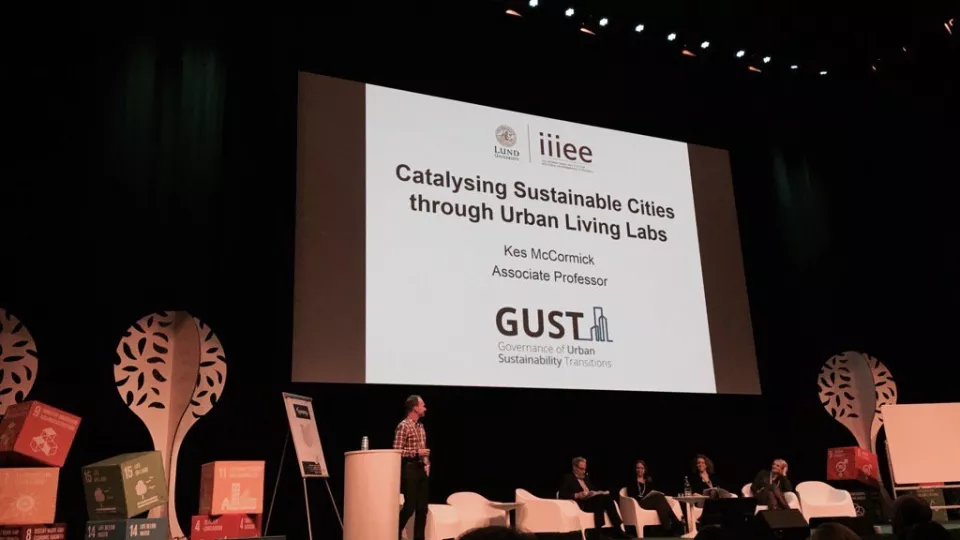Kes McCormick presented findings from the Governance of Urban Sustainability Transitions (GUST) project at the Sustainable City Development conference in Malmö, Sweden.
Urban Living Labs (ULLs) have emerged as an approach to experimentation in real-life city settings. They can be defined as sites (buildings, streets, and districts) devised to design, test and learn from social and technical innovation in real time. Despite increasing numbers of ULLs in Sweden, Europe and around the world, there is still a lack of understanding of their effectiveness and methodology, and it is unclear whether they contribute to transitions towards more sustainable cities in a substantial way despite holding great promise. This paper seeks to examine how ULLs can contribute to the development of sustainable cities by exploring four ULLs located in three cities in Sweden: Stockholm, Gothenburg and Malmö. While the cases differed in their focus and practices, they all apply an experimental approach to urban development. Some ULLs have visions and goals with a clear connection to sustainable development. Others have more open ended visions, allowing the users of the ULLs to co-create knowledge and promote learning. Yet others seek to develop inclusive urban planning methods to be used on a large scale to improve the governance of city development.
This paper is the result of research in the Governance of Urban Sustainability Transitions (GUST) project. ULLs are advanced as an explicit form of intervention delivering sustainability goals for cities. They aim at co-creation and empowerment of multiple stakeholders in co-shaping of the experimental approach and being open and participatory. While rapidly growing as an empirical phenomenon, our understanding of the nature and purpose of ULLs is still evolving. Drawing on transitions theory and urban governance and politics in the GUST project, we seek to shed light on ULLs as part of this broad phenomenon by developing a perspective that brings governance thinking into transitions theory and vice versa. This project focuses on core concerns within different approaches and the common ground they share as well as exploring important tensions. Through this process we develop a theoretical framework that can identify a shared set of concepts and issues to inform the investigation and analysis of ULLs in different contexts and conditions. We argue the key elements in such framework include the design, practices and processes of ULLs.
For more information on the Sustainable City Development conference click here


